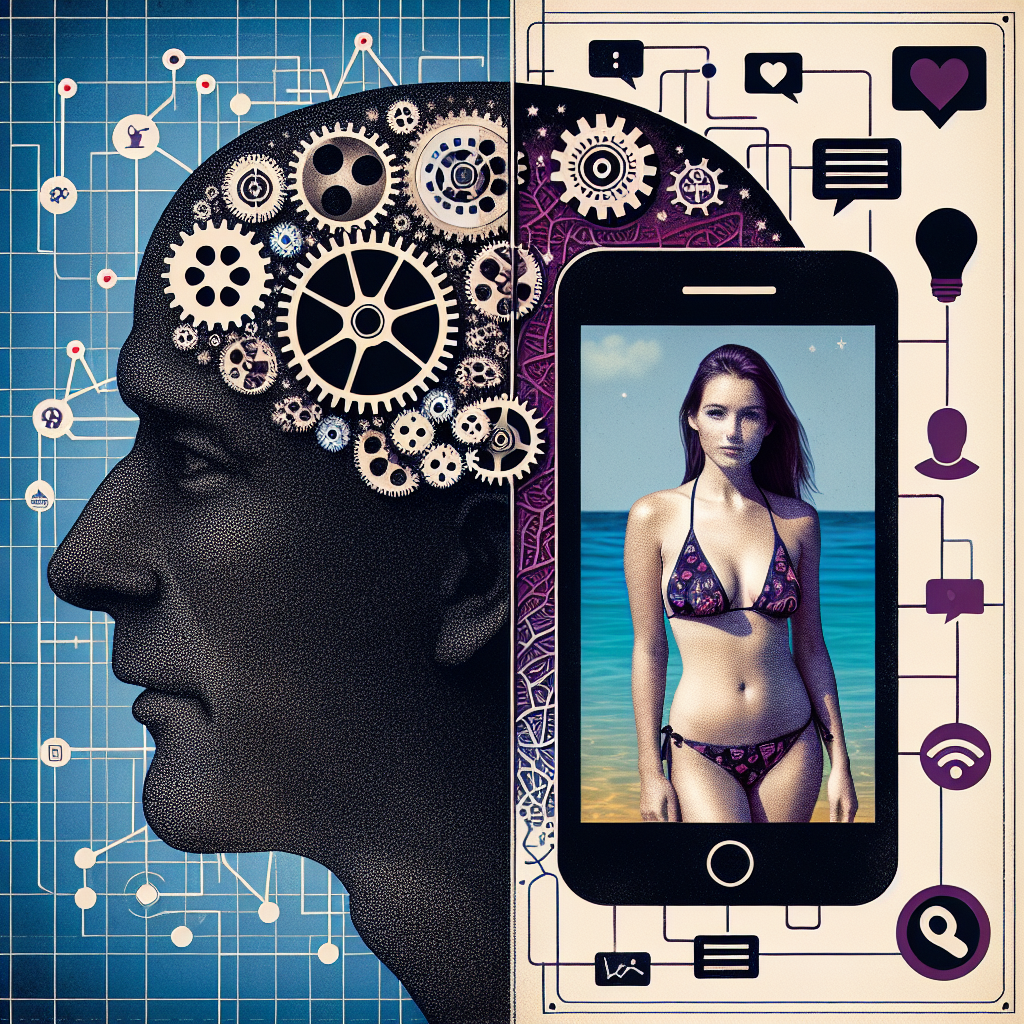Understanding the Psychology of Sharing Viral Bikini Photos
The Allure of the Bikini
Bikini photos have become a quintessential element of social media, evoking a spectrum of responses from admiration to envy. The psychology behind why individuals share such images can be dissected through various lenses, including self-expression, validation, and social dynamics.
Self-Expression and Identity
Sharing bikini photos serves as a form of self-expression. Individuals often curate their online personas through images that reflect their identity, interests, and lifestyle choices. For many, wearing a bikini symbolizes freedom, confidence, and empowerment, especially in contexts where body positivity is championed. This self-representation can foster a sense of individuality, allowing users to exhibit personal beliefs or aesthetics.
Furthermore, sharing bikini images can highlight one’s commitment to health and fitness, conveying an active lifestyle. This aspect resonates particularly well in social media cultures that idolize physical fitness, encouraging users to post images that celebrate their hard work at the gym or on the beach.
The Quest for Validation
The “likes” and comments accruing on bikini photos promote instant gratification and social validation. According to social comparison theory, individuals assess their worth relative to others. When someone shares a bikini photo, they often anticipate positive feedback, which can enhance self-esteem and reinforce their body image positively. Research has indicated that social media platforms amplify this phenomenon, as users are often more willing to engage with images that elicit strong emotional responses.
The dopamine release associated with receiving likes and compliments can create a cycle of validation, prompting users to share more content to experience that same rush. As a result, sharing bikini photos becomes not only a method of self-affirmation but also a mechanism for ongoing social approval.
Influencer Culture and Societal Pressure
The rise of influencer culture has redefined standards regarding body image and beauty. Many users look to social media influencers who often portray idealized lifestyles, leading to comparisons that can skew perceptions of reality. Influencers adept at showcasing their bikini photos can create a ripple effect, influencing their followers to partake in similar behavior. This phenomenon is often seen in the travel niche, where influencers share images from exotic beaches, consequently igniting a desire among followers to replicate that lifestyle.
Moreover, societal pressures can drive individuals to conform to these beauty standards. The pursuit of the “perfect” body, often portrayed in viral bikini photos, may compel individuals to post similar content, aiming to fit into the aesthetic mainstream. This mimetic desire, fueled by the perceived approval from peers, can distort personal values and significantly impact body image.
The Impact of Peer Influence
The sharing of bikini photos is often a communal activity, particularly among friends or social circles. Peer influence plays a substantial role, as individuals may feel encouraged to post similar content to match the behaviors of those within their networks. Group dynamics can create an environment where bikini photo sharing becomes normalized, fostering a sense of belonging among individuals who partake in this trend.
This effect can also be observed in challenges or trends that circulate on social media platforms, such as “Bikini Body” challenges. These communal experiences can bond individuals, though they may simultaneously perpetuate anxiety about body image and encourage unrealistic self-expectations.
The Role of Anonymity and Reception
The anonymity afforded by social media can also encourage individuals to share bikini photos they might not share in their offline lives. This digital barrier allows for a certain level of detachment when posting; users may feel that they can express themselves more freely without face-to-face interactions. However, this anonymity can also lead to negative experiences, where judgment or criticism surfaces in the comments section. The duality of anonymity fosters a complex relationship with self-worth, marked by the possibility of both acceptance and rejection.
Sexualization and Objectification
The sharing of bikini photos often intersects with themes of sexualization and objectification. Whether consciously or unconsciously, users may exploit this dynamic for attention, reinforcing certain gender stereotypes. Studies reveal that women, in particular, face societal pressures to project their sexuality through images, and bikini photos often become vehicles for this expectation.
This sexual undertone can complicate the motivations behind sharing such photos. While some individuals may embrace their sexuality in empowering ways, others may feel compelled to conform to societal expectations that dictate how they should present themselves.
Conclusion: Navigating the Landscape of Bikini Photo Sharing
Understanding the psychology behind sharing viral bikini photos requires a multifaceted approach. The convergence of self-expression, validation, peer influence, and societal pressures creates a complex landscape. As social media continues to evolve, the dynamics surrounding bikini photo sharing will likely transform, reflecting broader cultural shifts and psychological themes.



